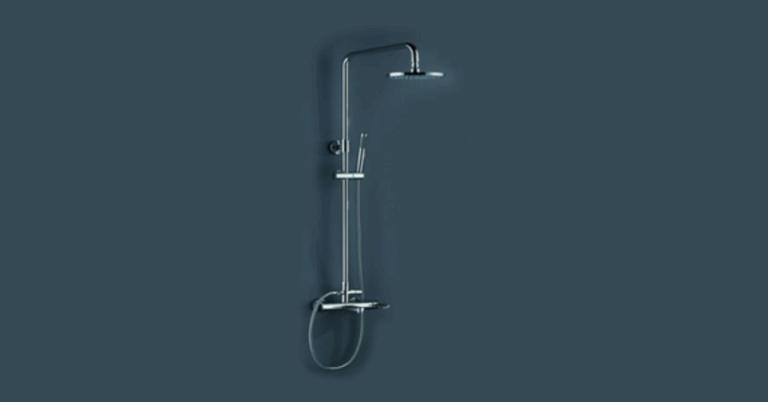The Ultimate Guide to Choosing a Chest Freezer 220V for Marine and Commercial Use
In today’s fast-paced world, having reliable food storage solutions is essential—especially for marine environments and cruise ships where space is limited and dependability is non-negotiable. One of the best choices for such demanding settings is the Chest Freezer 220V This type of freezer is specifically designed to offer durability, efficiency, and performance, making it the perfect fit for long voyages or offshore applications where fresh food preservation is vital.
Whether you’re outfitting a marine vessel, a commercial kitchen, or simply need a backup storage solution at a remote site, choosing the right freezer can make all the difference in daily operations. This guide explores everything you need to know about chest freezers with a 220V power requirement—focusing on features, benefits, buying tips, and usage best practices.
Why a 220V Chest Freezer?
Most commercial and industrial-grade appliances require higher voltage for optimal performance, and that’s where the Chest Freezer 220V comes in. These units are specifically designed to operate on a 220-volt power supply, which is standard in many parts of the world for heavy-duty appliances.
Here are some compelling reasons why a 220V chest freezer is ideal for marine and industrial settings:
-
Faster Cooling: Higher voltage allows compressors to work more efficiently, resulting in quicker freezing and better temperature stability.
-
Energy Efficiency: These freezers tend to consume less energy relative to the size and cooling power they deliver.
-
Long-Term Durability: Designed for rugged use, they’re built with robust materials and advanced insulation to withstand rough marine conditions.
-
Compatibility: Many ships, commercial kitchens, and remote facilities are already set up for 220V appliances, making integration seamless.
Key Features to Look for in a Marine Chest Freezer
When selecting a chest freezer for a marine or industrial environment, certain features can drastically improve functionality and performance. Here are the top features to look for:
1. Corrosion-Resistant Build
Marine environments expose appliances to moisture and salt, which can lead to corrosion. Opt for a chest freezer that has an anti-corrosive coating or stainless-steel exterior to extend its lifespan and ensure hygienic storage conditions.
2. Compact Yet Spacious
Space is always a concern on ships or in compact workspaces. The ideal chest freezer should offer a high internal volume without taking up excessive floor space. A Chest Freezer 220V with around 250–300 liters capacity provides a good balance between size and utility.
3. Energy-Efficient Compressor
For marine use, power consumption is a top priority. Energy-efficient compressors and eco-friendly refrigerants can significantly reduce the energy load while maintaining optimal performance.
4. Temperature Control and Indicators
Precision matters. Look for models with adjustable thermostats, LED indicators, and digital displays for accurate temperature monitoring. These features allow the user to keep food stored at optimal temperatures, preventing spoilage even during long voyages.
5. Safety Locks and Sealed Gaskets
A tight-sealing gasket and lockable lid can help maintain interior temperatures and prevent unauthorized access. This is particularly useful in shared or high-traffic environments.
Applications of Chest Freezer 220V
The Chest Freezer 220V is not limited to ships—it’s used across various industries that require powerful refrigeration. Here are some common applications:
-
Cruise Ships & Yachts: Used to store perishables for extended sea journeys.
-
Offshore Oil Rigs: Vital for storing bulk food supplies where resupply is infrequent.
-
Remote Clinics & Laboratories: Preserves sensitive items like vaccines, blood samples, and research materials.
-
Catering & Hospitality: Useful in event catering or mobile food services where commercial-grade freezing is essential.
-
Rural and Off-Grid Areas: Especially useful in areas with 220V power supply but limited refrigeration infrastructure.
Maintenance Tips for Longevity
Investing in a reliable freezer is only half the battle. Regular maintenance ensures consistent performance and long service life.
1. Defrost Regularly
Although many modern freezers come with auto-defrost functions, manual models must be defrosted periodically to prevent ice buildup, which can reduce storage capacity and efficiency.
2. Clean the Interior and Exterior
Use a mild detergent and soft cloth to clean both the interior and exterior. Make sure to unplug the unit before cleaning to avoid electrical hazards.
3. Inspect Seals and Hinges
Loose or damaged door gaskets can allow cold air to escape, overworking the compressor and increasing energy costs. Check these regularly and replace if necessary.
4. Monitor Temperature
Keep a thermometer inside the freezer to ensure that it maintains the correct freezing temperature, generally around -18°C. Any significant fluctuation might signal a malfunction.
Buying Guide: What to Consider
Before purchasing a Chest Freezer 220V, keep these considerations in mind:
Size and Capacity
Choose a model that fits your available space while offering sufficient storage. For marine use, a freezer around 250–300 liters is typically ideal.
Power Supply Compatibility
Ensure your onboard or site power system can support 220V. Also, check if the plug type is compatible with your outlets.
Warranty and Support
Go for brands that offer solid customer support and warranties. In case of malfunctions or the need for replacement parts, reliable service can be a lifesaver—especially in remote or offshore locations.
Noise Level
While not always a deal-breaker, low-noise operation is preferable, particularly on vessels where the crew needs rest during long voyages.
Conclusion
In summary, a Chest Freezer 220V is a must-have appliance for marine professionals, commercial operators, and anyone who needs a reliable, high-performance freezing solution in challenging environments. It offers the perfect mix of power efficiency, space-saving design, and rugged durability. Whether for storing seafood on a trawler, preserving medical supplies on an oil rig, or outfitting a mobile catering operation, this freezer type checks all the boxes for efficiency and reliability.
By investing in the right freezer with proper features, maintaining it regularly, and ensuring it’s tailored to your specific needs, you can count on years of uninterrupted service—keeping your food and materials preserved no matter where your journey takes you.


